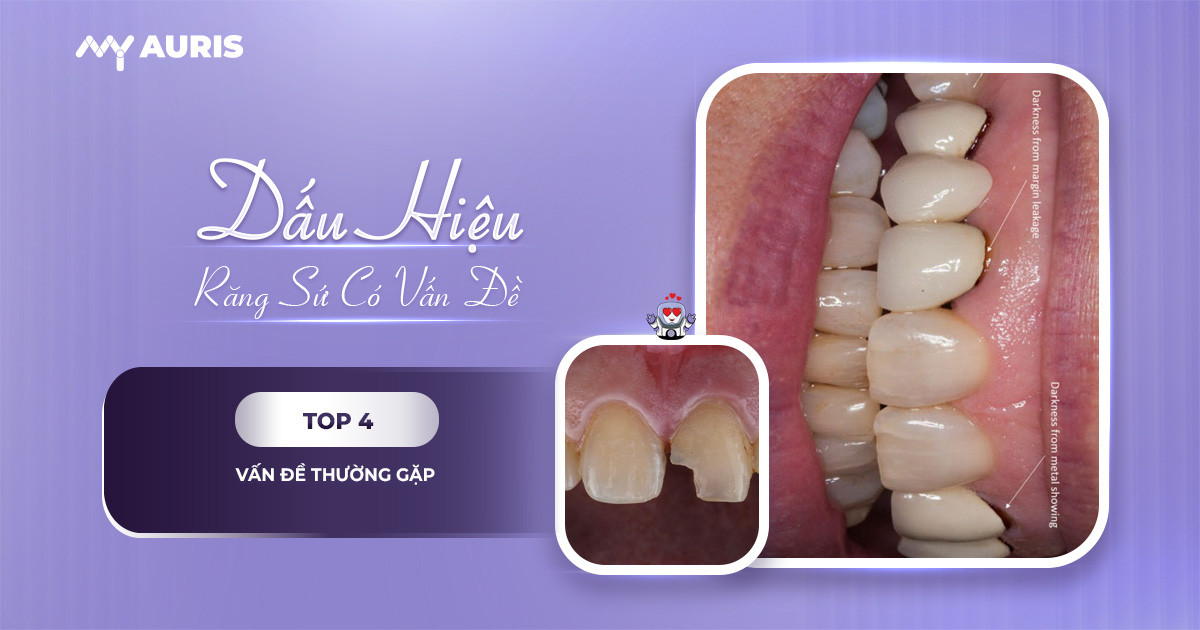Signs of Porcelain Tooth Problems
After getting porcelain teeth, unusual signs such as sore and sensitive teeth, discolored or sensitive gums, and mild pain at the location where the porcelain teeth are attached may appear. Problems such as exposed porcelain teeth that easily cause pain when eating, especially when food is inserted through the teeth, or mild itching in the gums also need attention. If the condition persists, you should go to the dentist for early examination and treatment to avoid dangerous complications.
Corcelain teeth with exposed roots
Open porcelain roots are a sign of porcelain teeth and gums separating. You may see a small gap, sometimes accompanied by gingivitis and bad breath. The cause is often due to poor porcelain dental technique, poor oral hygiene or injury. Signs of exposed porcelain teeth include:
- A gap appears between porcelain teeth and gums.
- Red, swollen gums that bleed easily.
- Prolonged bad breath.
- Sensing feeling when eating hot or cold food.
How to fix exposed porcelain teeth depends on the severity. In mild cases, the dentist can clean and fill the gap. In more severe cases, porcelain teeth may need to be rebuilt. To prevent exposed porcelain roots, practice proper oral hygiene and regular dental check-ups.
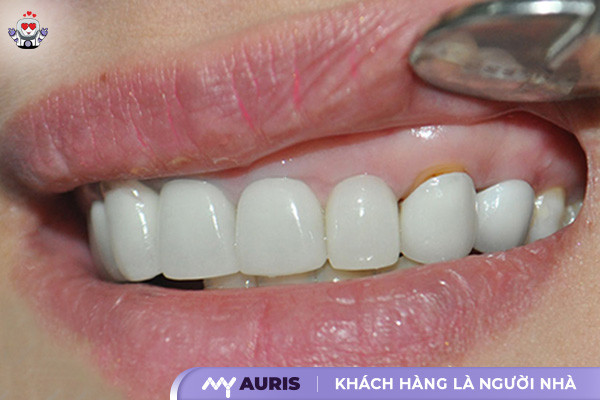
Ceramic teeth have blackened gum line
Black gum lines are a sign that the metal inside the porcelain teeth is oxidized and seeped out. This condition is common in metal-ceramic teeth. Porcelain teeth with blackened gum edges not only affect aesthetics but also pose a potential risk of infection. The cause of black porcelain teeth is usually due to:
- Using poor quality metal-ceramic teeth.
- The technique of making porcelain teeth is not guaranteed.
- Improper oral hygiene.
When you detect black gum lines, you should go to the dentist for advice. Depending on the condition, the dentist may polish or replace itnew porcelain teeth. Good oral care helps limit this condition.
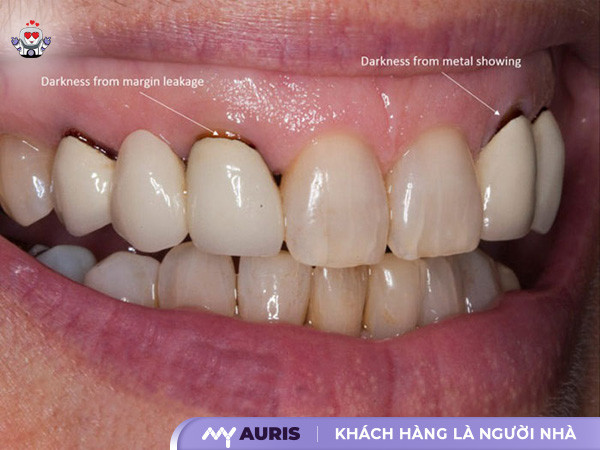
Sensitive porcelain teeth
Sensing when eating hot or cold foods is a sign of problems with porcelain teeth. The cause may be due to erosion of the real enamel underneath, exposed porcelain roots or pulpitis. Porcelain teeth are sensitive when eating hot or cold foods, causing discomfort and affecting quality of life. To determine the exact cause, it is necessary to go to the dentist for examination.
Depending on the cause, the dentist will have a suitable treatment plan. Gaps can be filled, root canal treatment or porcelain teeth can be restored. Taking good care of your teeth and avoiding foods that are too hot or too cold helps reduce sensitivity.
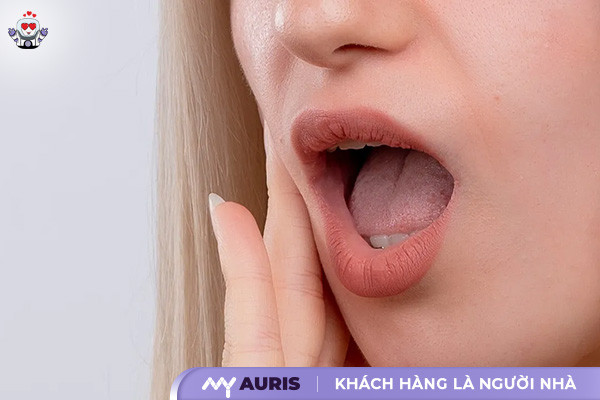
Broken, chipped porcelain tooth
Porcelain teeth are broken or chipped due to strong impacts, eating hard foods or poor quality porcelain teeth. Broken porcelain teeth, broken porcelain teeth, and chipped porcelain teeth not only affect aesthetics but also cause difficulty when chewing. When a porcelain tooth is broken or chipped, you need to go to the dentist immediately.
Depending on the level of damage, the dentist will re-fill or replace the porcelain tooth. Avoid eating foods that are too hard and choose good porcelain teeth material to increase durability.
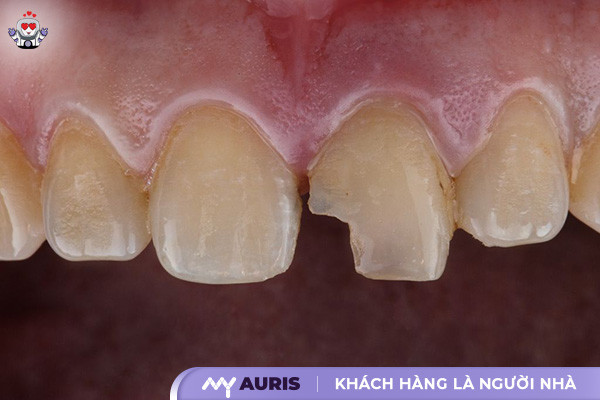
How to Care for Porcelain Teeth Properly
Proper care of porcelain teeth helps maintain a confident smile and good oral health. Daily oral hygiene, regular dental check-ups and avoiding bad habits are necessary to protect porcelain teeth. Porcelain teeth are an investment in your smile and health. Take care of them properly to enjoy the benefits they bring.
Daily oral hygiene:
Proper oral hygiene is the most important factor. This helps remove plaque and prevent harmful bacteria. Clean teeth help porcelain teeth last beautifully, avoiding problems such as exposed roots, black gum lines, gingivitis.
- Brush your teeth: Brush your teeth at least twice a day, morning and evening. Use a soft-bristled toothbrush and fluoride toothpaste. Brush gently in circular motions, avoid vigorous rubbing, which can cause tooth enamel erosion and gum damage.
- Using dental floss: Dental floss helps clean between teeth, where it’s hard for a toothbrush to reach. Using dental floss daily helps remove plaque, leftover food, and prevents tooth decay and gingivitis.
- Mouthwash: Using mouthwash containing fluoride helps improve oral health and prevent bacteria. Rinse your mouth after brushing and flossing.
Regular examination:
Regular dental examination every 6 months helps the dentist check the condition of porcelain teeth and detect potential problems early. The dentist can help you with deep cleaning, removing stubborn plaque, and polishing porcelain teeth. This helps maintain the beauty and prolong the life of porcelain teeth.
Regular examinations help dentists detect early signs of abnormalities such as exposed gums, black gum lines, and gingivitis. This helps you handle it promptly, avoiding dangerous complications and high treatment costs. The dentist will also advise on how to care for porcelain teeth suitable for your oral condition.
Avoid bad habits:
Some bad habits can damage porcelain teeth, causing breakage, chipping or exposed roots. Limiting the following habits helps protect porcelain teeth:
- Eating foods that are too hard: Limit eating foods that are too hard such as ice, hard candy, and hard nuts. These foods can break or chip porcelain teeth.
- Chewing ice: The habit of chewing ice is very harmful to teeth, including real teeth and porcelain teeth. Chewing ice can chip, break or crack porcelain teeth.
- Using teeth to bite hard objects: Avoid using teeth to bite, open bottle caps, or tear packaging. These actions can damage porcelain teeth.
- Teeth grinding: Teeth grinding puts a lot of pressure on the teeth, erodes tooth enamel and can cause broken or chipped porcelain teeth. If you have the habit of grinding your teeth, consult your dentist for advice on solutions.
When Should You Replace Porcelain Teeth?
Replacing porcelain teeth is important decision. Consult your dentist for specific advice. The dentist will evaluate your oral condition and give appropriate advice.
Severely damaged porcelain teeth
Severely damaged porcelain teeth need to be replaced immediately. This condition affects chewing function and aesthetics. Serious issues include:
- Broken, large chips: Broken porcelain teeth, large chips cannot be repaired with dental fillings. Replacement is the only solution.
- Severe exposed roots: Severe exposed porcelain roots create conditions for bacteria to penetrate, causing infection. Replacing new porcelain teeth helps protect oral health.
- Infection: Infection around porcelain teeth causes pain and swelling. Need to replace porcelain teeth and thoroughly treat infection.
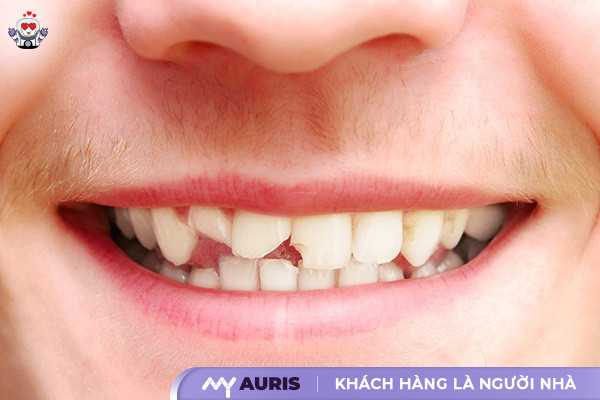
Old porcelain teeth
Ceramic teeth can degrade after long periods of use. Even though not seriously damaged, replacing old porcelain teeth helps improve aesthetics and function. Some signs that porcelain teeth are old:
- Color changes: Porcelain teeth become yellow and dull over time. Replacing new porcelain teeth helps restore a bright white smile.
- The shape is no longer suitable: Gums may atrophy, exposing the porcelain roots. Replacing new porcelain teeth helps improve aesthetics.
- Old material: Dental technology is increasingly developing. Replacing old porcelain teeth with new, more modern materials helps improve durability and aesthetics.
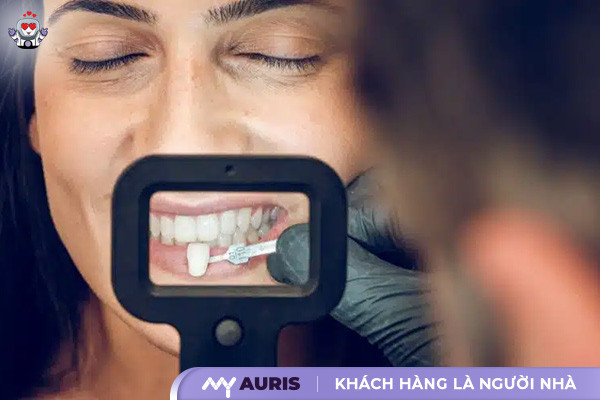
New porcelain tooth technology
The development of dental technology brings many better porcelain teeth options. Replacing old porcelain teeth with new technology helps improve many aspects:
- Better material: Modern all-ceramic porcelain teeth have superior durability and aesthetics.o than metal ceramic teeth.
- More precise techniques: CAD/CAM technology helps make porcelain teeth more accurately, matching the teeth better.
- Time to make porcelain teeth is faster: Some new technologies allow making porcelain teeth quickly, saving time.


